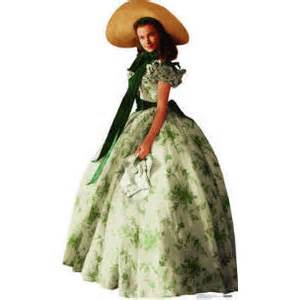Honesty is the best policy. Except when it’s not. That’s the crux of Southern-speak, right there. You’ll find yourself wandering into the “except when it’s not” territory more than you ever thought possible. You might even end up forwarding your mail there, you’re in it so often.
This goes far beyond the old comic line, “Do these pants make my butt look big?” Really? People, unless you need to quickly assess whether or not your partner is experiencing suicidal tendencies, why would you ever ask a question like that? Baiting your partner with land mine questions is not cool. And for those of you who are stuck in the remedial relationship class, the answer to that question is always, “Why no, Honey. In fact, I was just thinking that you look very pretty today.”
No, Southern-speak can be far more subtle. We learned it watching our parents and our grandparents, so we can spot it and drop it without thinking. For those of you who were not raised Southern, well, you obviously need some assistance. Here I am, a public service peach, ready to help.
“I’m just being ugly.”
This phrase has nothing to do with physical attractiveness. All Southern women are beautiful and we know it. This phrase refers to behavior, speech, or attitude. The speaker is announcing that they have slipped into some serious hatefulness. It’s a half-hearted apology and/or acknowledgement that yes, we are indeed being a world-class bitch but we’re not quite finished yet. Recognizing you have a problem is the first step back towards “nice lady” behavior.
“You’d best be getting to it.” or “You’d best not do that.”
Other regions might use the “You’d better. . . .” but in the South, we have ramped up our seriousness on the good-better-best scale. When we say you’d best, we are quite earnest that you should or should not do whatever we are discussing. This also implies a certain amount of urgency.
“You go right ahead.”
Under no circumstances are you to proceed with whatever you are contemplating if you’ve heard this from your mate. It is not permission, it is a warning. In fact, if you’ve pushed hard enough, you might hear this phrase delivered in an even clearer manner. “You go right ahead, I dare you.”
“Bless your heart.”
This one is pretty well-known yet still confuses people. We are not the Pope. We ain’t blessing nobody. This is our go-to substitute for anything rude we might think when we realize you’re not very bright. We understand you could just be having a bad day. Everyone suffers moments of stupidity. I warn you though, if we say “bless your heart” and pat your hand, you’ve just said or done something so peculiar that it has convinced us your mother still has to dress you or worse, you’re a ward of the state. Which would explain a lot about you, actually.
“Fine.”
This one is practically universal, so I’m surprised that people are still confused about its true meaning. If you are in a discussion with your mate and they say “fine,” particularly if they deliver it with any degree of finality, this is not agreement. If anything, it is agreement’s bastard evil twin. It is a warning shot across your bow. The “fine” cannon has been fired. Stop talking. Stop doing what you’re doing. Back out of the room quietly. Maybe get in the car and go for a long drive. Don’t broach the subject ever again.
I can understand the source of this confusion. I have poked about all the dictionaries I could find. American Heritage, Merriam-Webster, Oxford American and they all get it wrong, wrong, so very wrong. Just one dictionary comes close to giving the correct definite of the word “fine.” The Urban Dictionary captures the essence of the word, which I will paraphrase here.
Fine: meant to signal the abrupt end of an argument. Also see: Go fuck yourself.
Any questions?

